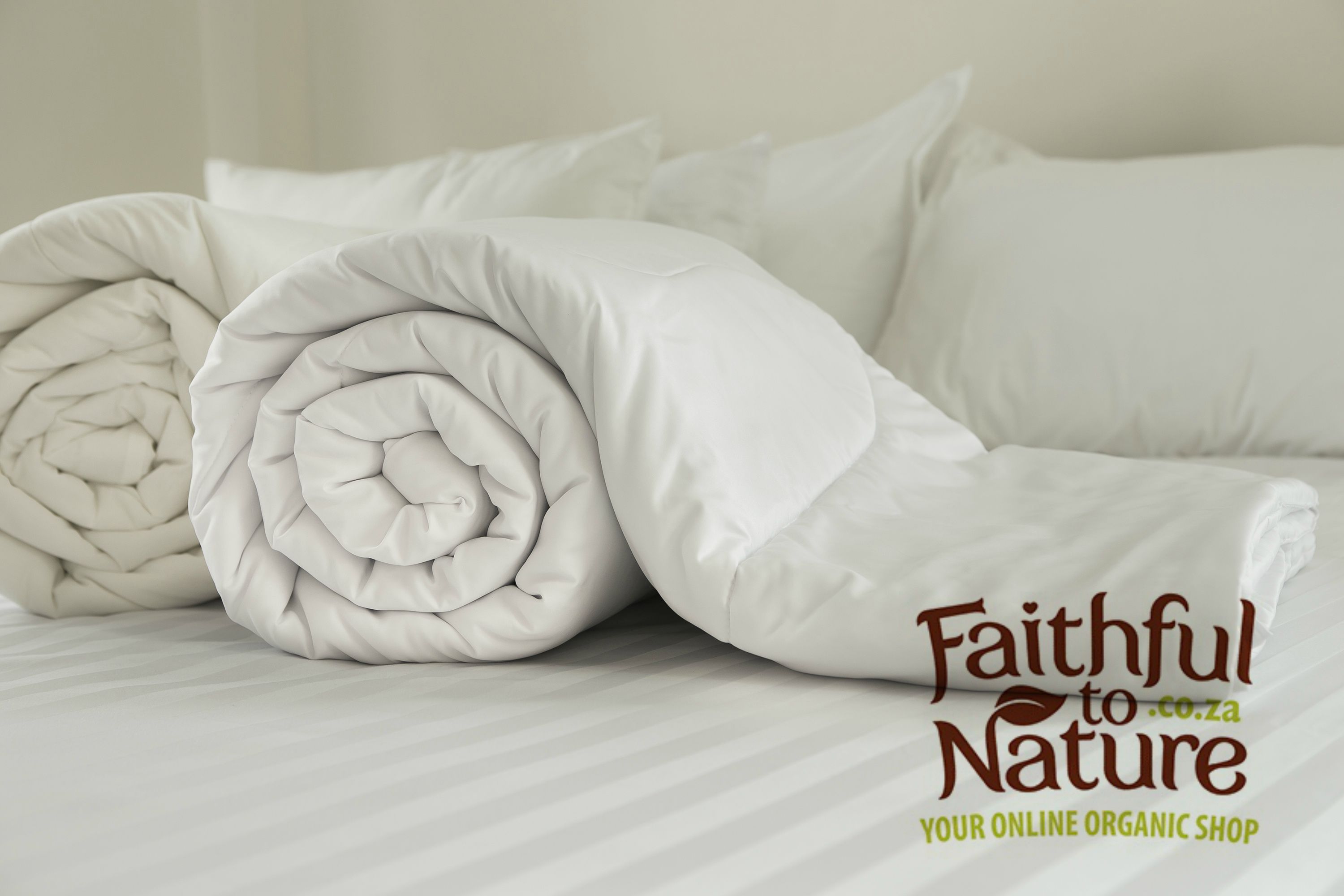
24 Jul How To Choose The Right Organic Duvet
When it comes to settling down to sleep, the right duvet can add just the right luxurious touch that can send you off to dreamland feeling snug as a bug. Well-chosen bedding is an investment that will last you a number of years. What are the options for an Organic Duvet?
Synthetic or natural?
You have the option to go synthetic, or natural. Synthetic duvets are usually polyester-based which means they are made with synthetic fibers derived from petroleum which is a non-renewable, polluting source that is also not the most body-friendly alternative. They also don’t have the same kind of life-span that natural materials do. Organic materials are the most natural choice for breathable, healthy bedding that is also from a renewable source.
Allergies
But what if you have allergies? In the past synthetic duvets were the answer for people with sensitivities as they repel dust-mites and feather duvets tend to accumulate these little critters. You could wake from your slumber rather itchy, sniffy or irritable to say the least.
With the advances in modern technology, there are some super-soft luxurious bedding options that are not only natural but allergy-free. Some manufacturers say that their feather duvets have been thoroughly treated for dust mites, but if you are truly allergic, the jury is out on whether you can really get a down duvet that you won’t react to.
There is another option that has become more and more popular recently that is not only natural, but naturally hypoallergenic. The era of the silk duvet is here. So your natural options are either duck down, or silk.
How do they compare?
Down
• One of the biggest drawbacks of down is that many manufacturers use feathers that have been plucked from ducks and geese under inhumane conditions. Make sure you source a down duvet from a cruelty-free brand
• From a renewable resource but is not naturally hypoallergenic
• Soft and luxurious and like sleeping in a puffed-up cloud
• Down is the fluffy quill-less feathers from the belly of geese and ducks
• To keep the down from accumulating in one big bundle, it is sown in pockets in the duvet, and over time it can become lumpy
• Down is a very efficient insulator, but this can also mean that it can trap moisture
• It traps your body’s warmth and keeps it circulating back to you
• This can result in overheating during the night as heat builds up and you may find yourself sweating or sticking a foot out the edge as a kind of radiator
• Sweating can lead to bacteria build-up in the duvet
• Down duvets are unable to help keep you at a constant comfortable temperature and you will need a wider range of weights throughout the year.
Silk
• Mulberry silk is spun from the silk of the cocoons of silkworm moths
• It is naturally hypoallergenic
• It breathes naturally so some of your body heat can escape, helping your body to regulate its temperature so you sweat less
• This makes it more adaptable to different temperatures
• Sweating less means there is less bacteria build up in the duvet, and of course, sweating less is more comfortable for you
• Silk Duvets drape beautifully over your body.
Whichever duvet you choose, you’ll be spending a lot of time cocooned in its cuddly depths, so find the one that appeals to your sense and sensibilities best and sleep tight!




No Comments